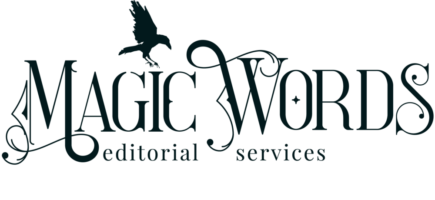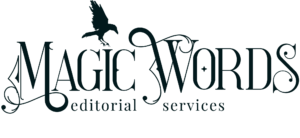7 First-Page Mistakes That Get Your Manuscript Tossed in the “No” Pile
Posted March 07, 2023
at 10:45 pm
in
Edit That Book,
Write That Book
Last week, I attended the virtual Women in Publishing Summit, and it was ❤?❤?❤?. I learned a ton and made so many awesome connections with writers, editors, publishing professionals, and others—all amazing women living their dreams and changing the world.
One of the BEST sessions of the conference was the agent slush fest. Four literary agents read and responded to pre-submitted and randomly selected opening pages, giving their insights into what the author did well—and what would make them instantly stop reading and hard pass on the rest of the manuscript.
Harsh? Yes. At times, the criticism was hard to hear, and I’m not even a querying author! (Yet.) Even the agents said doling out such blunt feedback was hard for them. But they repeated again and again they offered this honesty in the spirit of helping writers grow and improve. The world of traditional publishing is competitive beyond belief, and they have mountains of manuscripts to read. A snap decision on a book’s quality and sale potential is the only way to winnow down the hopefuls to those manuscripts with true merit.
Magic writers, I want your manuscript to be one of those.
So I’ve compiled the top reasons the agents gave for passing on a book in their own words. I encourage you to eliminate these mistakes from your opening pages and earn your story that important second look.
MAKING A READER WORK TOO HARD
The most common mistake the agents mentioned was the author made them work too hard to figure out what was going on in the first pages, something especially common in the fantasy and sci-fi books they reviewed. You’ll make your reader work too hard by:
AGENT A: “It’s really important, especially in fantasy, that you are describing things in a way that is inviting the reader into it instead of just throwing terms and expecting us to figure it out. It adds more brain power to have to figure it out, and that will turn off some readers.”
AGENT C: “When I started to get confused [by the world-building], that’s when I started to get lost.”
AGENT B: “There’s a good reason sometimes to not let the reader in on everything right away—Is this a voice in her head? Is this a demon in her corner?—but when I spend so much time trying to figure out what’s going on in the first half a page, you’ve lost me.”
AGENT C: “The first sentence has to make sense. How can the character be alone if someone’s watching? This would automatically be a no, just from this first sentence.”
AGENT D: “It was way too much to follow.”
The takeaway: if an agent is already asking major questions about aspects of the action and opening scene without getting answers, they’ll move on.
STARTING WITH INFO, NOT ACTION
The agents all seemed to agree that beginning a story with information instead of action would be a deal-breaker. As AGENT C put it, “The big question an author needs to answer right away is, What’s in it for me (the reader)? What is it for the audience that will make them turn the page or buy the book?” For agents, that means meaningful action and interesting characters, right from page one. You’ll make this mistake if you:
AGENT A: “Always start with the action. We want to know what’s happening. We want to get into the characters and the interesting stuff that’s happening to them. That’s what’s going to get and keep us invested. All the world-building stuff, I don’t care about. Give me something to pay attention to.”
AGENT B: “Focus on a moment and a person, have them do something, and then instead of info dumping on the first page, let it go from there, build it out. You have time in sci-fi/fantasy. This is not a short story.”
AGENT A: “This is just the writer telling us about this character’s day. It felt more like an essay than a story. We need to see where [the story’s] going right up front.”
AGENT B: “An ‘as you know, Bob’ is when a character states something out loud that most people wouldn’t. It’s clearly there to educate the reader or move the story along. It’s an artificial moment to introduce readers to the premise. Authors that get deals don’t have to create an artificial feeling, saccharine moment. It has to feel real, extremely authentic.”
The takeaway: your opening line and pages should jump right into the story, with good action, conflict, and characters. Start with a scene, not information, weaving your world building, backstory, and details into the book as the story develops.
TELLING, NOT SHOWING
Telling the events of the story instead of showing them to the reader in an active scene seemed to be a big no-no for the panel, with one agent making a point to call it out each time. You might be telling and not showing in your first pages if you:
AGENT C: “You want to invoke the senses, we want to be in the moment with your characters…we want to smell it, we want to see it, we want to taste it.”
-
Use a lot of is/was (“he is,” “she was”) writing.
-
Utilize paragraphs that read like a laundry list of details.
The takeaway: engage your readers’ senses, and make sure you’re writing in a way that shows and not tells.
CLICHED OPENINGS/TROPES
Yeah, agents have seen it all, so books that begin with cliches or overused tropes almost always get a thumbs down. Originality is key. You may bore an agent with cliches if you:
AGENT B: “A book that starts with waking up, that starts with a dream, that starts with getting out of bed—that’s an instant no for me. I know it’s not fair, but I need a start that’s more imaginative than that. Don’t start with a dream, don’t start in the car, and don’t start with weather.”
AGENT C: “Everything felt so cliche. I’ve read a million sentences just like this about warm, gentle breezes, a hint of salt, breeze kissing my skin. . .”
AGENT B: “Sci-fi/fantasy is so competitive, you have to be high concept. Don’t rely on tired tropes (like a young girl stalking a deer in the woods) that I’ve seen so many times. I didn’t see anything new in the first page.”
The takeaway: have fresh, original descriptions and comparisons, and if you decide to incorporate tropes, add a twist or new take that an agent isn’t likely to have seen before.
WEAK WRITING
As the panel said over and over, traditional publishing is highly selective, and agents offer representation only to the best of the best. Weak writing that’s not at the top of the craft will more often than not end up rejected. You might need some help making your writing stronger if you:
AGENT C: “The sentence structure was too simplistic and straightforward, like a kids book.”
AGENT C: “Don’t repeat words too close together. Use a thesaurus.”
AGENT A: “The first sentences started with the same word over and over. This is an oversaturated genre, [the writing] has to be outstanding.
AGENT D: “There were three instances of head hopping on the first page. Automatic no for me.”
NO EDITING
Hoo boy (cracks knuckles)—as an editor, it was immensely gratifying to hear again and again that a poorly edited book will put an agent right off. (That’s what I’ve been saying all along!) Anything from spelling mistakes to formatting—the panel members called it out with a big fat “nope.” You might make this mistake if you:
-
Submit a manuscript with grammar, spelling, usage, and mechanics mistakes or other proofreading errors.
AGENT A: “We want to see something that is clean. If I feel like the person hasn’t put enough effort into at least proofreading it…then I wonder how serious they are and how much work it’s going to be in the long run.”
AGENT C: “We’re not editors. If you’re going to send [an acquiring editor] something, it has to be top notch. You want your first impression to be, ‘This is my best work ever.’ We don’t ever want to get tripped up on an error because there are a thousand other people waiting for their stories to be read, and [a manuscript is] so easy to put down. I never want to give an [acquisitions] editor a chance to say no. I always want to make sure [my authors] have their best yes. So make sure, even if you have to pay someone to look at it, to edit it for you, you want to do that before you send it to someone who might be the gatekeeper to an editor.”
AGENT A: “I don’t know why they put this character’s speech in italics. That alone would make me not want to keep reading because I would just be too confused throughout the whole thing.”
UNCONSCIOUS LANGUAGE/INSENSITIVITY
The most surprising advice from the agent on the panel who represents sci-fi and fantasy was her warning that authors who write in these genres MUST keep conscious and sensitive language front and center. When constructing a world or fantastical setting or your amazing characters, be aware of potentially problematic and/or racially charged naming, characteristics, or conflicts. Here’s what that agent had to say:
AGENT B: “For those of you in sci-fi and fantasy who are in the middle of querying and you’re getting a lot of either silence or ‘no, thank yous,’ just know that there’s no more exciting and wonderful time in sci-fi and fantasy than right now, but it’s also highly problematic…editors have to be culturally sensitive to anything that could be taken [as a racial slur].”
The takeaway: evaluate everything through the lens of possible unconscious bias, or hire a sensitivity reader if your work might contain potentially problematic elements.
So, magic writer, what are you to make of this information? If you realize you’ve made some of these mistakes in a book that you’re planning to submit to agents, don’t despair! As they say, information is power. Now that you know, you’ll be well-armed to make the revisions necessary to get that all-important second look.
Also, keep this in mind: as I listened to the agents’ feedback, two thing struck me. First, sometimes the agents contradicted themselves from one book review to the next—what they said was a problem with one story was okay in another. That just illustrates the subjective nature of agent reviews, and sometimes even they can’t tell you why one opening page grabs them and another doesn’t.
Second, there was no “magic bullet,” nothing new or particularly novel about the advice they gave. Info dumping, telling and not showing, weak writing—these are all issues of craft that can improve with practice, education, and revision. Put in the work, learn your craft, revise and revise some more . . . and hire an editor. Do these things, and that important “yes” is right around the corner.
It just takes one!
Are you about to begin querying agents for your story? Or have you been querying with no results?
Get help making your query package the best it can be. My
Query Cleanup service is a diagnostic assessment of your letter and synopsis using a proprietary checklist of best practices, followed by a line edit for language flow, sentence structure, and grammar, spelling, etc. It’ll pinpoint weak spots in your agent introduction, helping you put your best foot forward and get that oh-so-important full request.
Apply for yours today!





